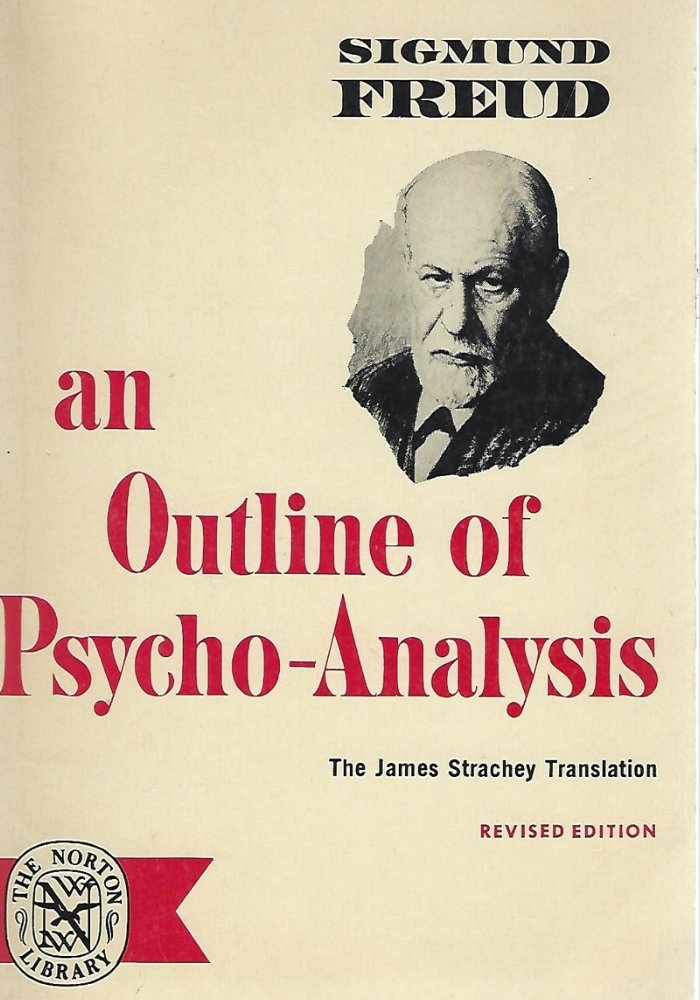Introduction
When one hears the name Sigmund Freud, a flurry of ideas and controversies comes to mind. His work, An Outline of Psycho-Analysis, serves not just as a window into the complex machinery of the human mind but also as a mirror reflecting our own selves, albeit through a lens tinted by early 20th-century thought. This book, compact yet profound, offers a journey into the foundational elements of psychoanalysis. Let’s embark on this journey together, navigating through Freud’s intricate theories, reflecting on their relevance today, and, perhaps, uncovering aspects of ourselves along the way.
The Structure of the Psyche
Freud’s concept of the psyche is vividly depicted using a city metaphor: hidden alleys symbolize the unconscious, dictating much of our behavior without our awareness, the superego’s rigid laws govern, and the ego, like everyday citizens, navigates these complex interactions. This framework clarifies the constant internal dialogue influencing our decisions.
The iceberg analogy deepens understanding of the unconscious: like an iceberg, most of our mind lies hidden beneath, with only a fraction visible. This unseen portion shapes our dreams and unintentional slips, hinting at a vast, obscure mental landscape.
Freud’s psychosexual development stages, though controversial, encourage reflections on how early life shapes adult identity, influencing desires and fears. These developmental stages suggest that our past intricately crafts our present.
Defense mechanisms are strategies our psyche employs to preserve balance by distorting reality when needed, such as rationalizing mistakes or denying truths. These mechanisms reveal our mind’s efforts to maintain stability amidst internal conflicts.
Lastly, the Oedipus Complex, a contentious Freudian theory, extends beyond psychology into literature and popular culture. It provides a lens to examine complex familial dynamics, exploring themes of rivalry, desire, and betrayal, illustrating its wide-reaching impact.
Reflections and Real-Life Applications
Freud’s theories, over a century old, continue to challenge us to introspect our deepest habits and personal growth avenues. Delving into the roles of the id, ego, and superego unlocks profound self-awareness and a clearer understanding of our motivations and conflicts. This introspection can significantly alter our personal narratives.
In recognizing our defense mechanisms, such as denial or projection, we confront our deeper insecurities and fears. This crucial step initiates a transformative journey towards emotional maturity by revealing underlying motives behind our behaviors.
From personal experience, acknowledging the significant influence of my unconscious has been enlightening. This realization, that many of my actions stem from unseen forces, has launched an ongoing exploration of my deeper self, revealing hidden fears and motivations previously overlooked.
This journey of self-discovery is unending. I invite you to embark on this path, to dive deep into your psyche and discover the liberating power of understanding the hidden aspects of your personality. This process is not just about insight but about achieving a profound freedom in recognizing and accepting your true self.
Strengths, Weaknesses, and Modern Perspectives
Freud’s theories, though groundbreaking, have not escaped criticism. Detractors highlight his excessive focus on sexuality and the lack of empirical backing, arguing that his ideas often mirror the socio-cultural milieu of early 20th-century Vienna rather than universal truths.
Yet, the significance of Freud’s work extends beyond these criticisms. His innovative approach to the human psyche has profoundly influenced various disciplines, from literature and art to psychology itself, offering a complex framework for understanding human motivation and interaction.
Modern psychology has indeed progressed from Freudian theories, embracing more scientifically robust methodologies like cognitive-behavioral therapy and positive psychology. These contemporary approaches prioritize observable behaviors and cognitive processes over Freud’s speculative insights into unconscious motives.
Nevertheless, Freud’s fundamental inquiries into the nature of human behavior remain compelling. His questions about our actions, the influence of our past on our present, and the meanings of our dreams continue to stimulate deep reflection and debate, sustaining his relevance in academic and popular discourse. These enduring inquiries highlight the profound impact of his legacy on our understanding of the human condition.
Concluding Thoughts
Freud’s assertion that “Being entirely honest with oneself is a good exercise” is more than an aphorism it’s an invitation to rigorous self-examination that *An Outline of Psycho-Analysis* encourages. This book extends beyond its clinical origins, serving as a profound guide for personal exploration. Whether Freud’s theories resonate or provoke skepticism, they prompt meaningful self-reflection and intellectual dialogue.
I urge you to engage with Freud’s work not simply as a historical piece but as a dynamic tool for personal discovery. His theories offer a unique perspective on our behaviors, fears, and desires, fostering an essential internal dialogue that remains pertinent today.
Let this engagement be more than mere reading let it be an exploration. Venture into the labyrinth of the human mind with Freud as your guide, and embark on a journey to uncover not just the foundations of psychoanalytic thought but the unexplored depths of your own psyche. This call to action is designed to inspire you to transform reading into a personal and transformative exploration.






